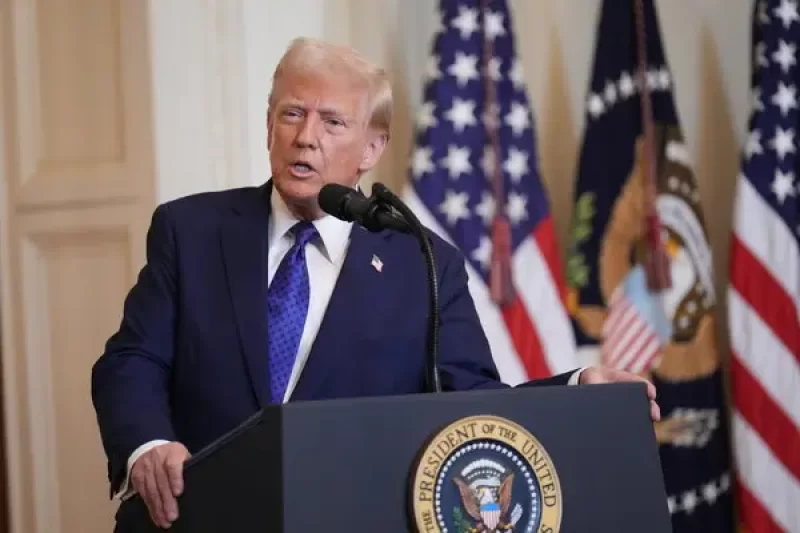Trump to Hit Canada, Mexico and China with Tariffs on Saturday
US President Donald Trump will impose tariffs on Saturday of 25% on Mexico, 25% on Canada and 10% on China, says the White House.
But Trump said on Friday that Canadian oil would be hit with lower tariffs of 10%, which could take effect later, on 18 February.
The president also said he planned to impose tariffs on the European Union in the future, saying the bloc had not treated the US well.
White House press secretary Karoline Leavitt said the Canada and Mexico duties were in response to "the illegal fentanyl that they have sourced and allowed to distribute into our country, which has killed tens of millions of Americans".
Trump has also repeatedly said the move was to address the large amounts of undocumented migrants that have come across US borders as well as trade deficits with its neighbours.
Ms Leavitt told a news briefing at the White House on Friday: "These are promises made and promises kept by the President."
During the election campaign, Trump threatened to hit Chinese-made products with tariffs of up to 60%, but held off on any immediate action on his first day back in the White House, instead ordering his administration to study the issue.
US goods imports from China have flattened since 2018, a statistic that economists have attributed in part to a series of escalating tariffs that Trump imposed during his first term.
Earlier this month, a top Chinese official warned against protectionism as Trump's return to the presidency renews the threat of a trade war between the world's two biggest economies - but did not mention the US by name.
Addressing the World Economic Forum in Davos, Switzerland, Ding Xuexiang, Vice Premier of China, said his country was looking for a "win-win" solution to trade tensions and wanted to expand its imports.
China, Canada and Mexico are the top US trading partners, accounting for 40% of the goods imported into the US last year, and fears are rising that the new steep levies could kick off a major trade war as well as push up prices in the US.
Canadian Prime Minister Justin Trudeau said on Friday: "It's not what we want, but if he moves forward, we will also act."
Canada and Mexico have already said that they would respond to US tariffs with measures of their own, while also seeking to assure Washington that they were taking action to address concerns about their US borders.
The BBC has reached out to the Chinese embassy in the US for comment.
If US imports of oil from Canada and Mexico are hit with levies it risks undermining Trump's promise to bring down the cost of living.
Tariffs are an import tax on goods that are produced abroad.
In theory, taxing items coming into a country means people are less likely to buy them as they become more expensive.
The intention is that they buy cheaper local products instead - boosting a country's economy.
But the cost of tariffs on imported energy could be passed on to businesses and consumers, which may increase the prices of everything from petrol to groceries.
Around 40% of the crude that runs through US oil refineries is imported, and the vast majority of it comes from Canada.
On Friday, Trump agreed tariff costs are sometimes passed along to consumers and that his plans may cause disruption in the short-term.
Mark Carney, the former head of Canada's and England's central banks, told BBC Newsnight on Friday that the tariffs will hit economic growth and drive up inflation.
"They're going to damage the US's reputation around the world," said Carney, who is also in the running to replace Prime Minister Trudeau as leader of Canada's Liberal Party.
(Source: BBC)













